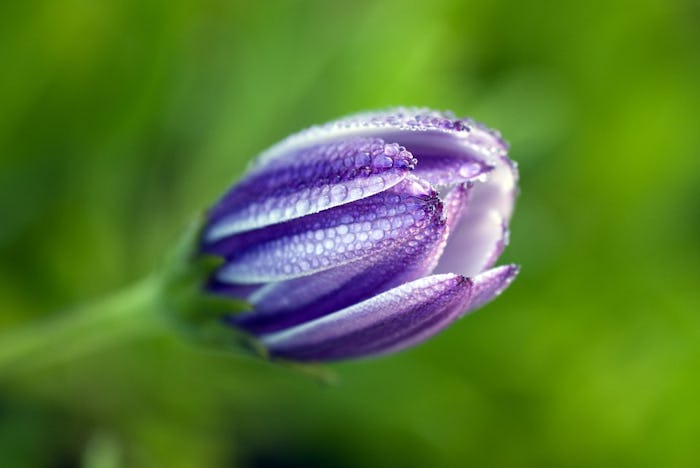If you're actively trying to conceive, you're probably familiar with terms like, basal body temperature, cervical mucus, ovulation predictor kits (OPKs), and luteinizing hormone (LH). Getting to know your body and its cycles can help increase your chances of getting pregnant, as all of these things come into play when trying to predict fertility. But, it can all get confusing after a while. If you are tracking your cycle to predict fertility, you might wonder, how long does an LH surge last?
Ovulation is controlled by the luteinizing hormone (LH). According to the Mayo Clinic, LH is usually present in your blood and urine in very small amounts, but rises suddenly for a short time in the middle of your cycle. This sharp rise, the LH surge, usually causes ovulation within about 30 hours. Over-the-counter OPKs can help to detect the LH surge by testing for the hormone in your urine. Because ovulation is the most fertile time of your cycle, knowing when your LH surges can help you to conceive.
But, how long does an LH surge last and how can you use this to increase your chances of getting pregnant? As with most things concerning your health and body, there's no steadfast answer.
According to Janet Choi, MD, a reproductive endocrinologist with CCRM-New York, the start of the LH surge occurs about 34 to 36 hours pre-ovulation, but the peak of the surge usually happens about 12 hours pre-ovulation. "For women who have relatively regular cycles, a positive urine LH test is a good signal to start having unprotected sex or schedule an insemination," Choi mentions in an interview with Romper. "Once the urine LH turns positive," she says, "I counsel women to stop checking and just focus on having sex or booking an insemination. Because the LH spike can be short in duration, the kit might turn positive just once and then not again."
Because LH surge detection can be fleeting, it's important to not miss a day, or you might miss the surge. As Dr. Eric Levens of Shady Grove Fertility notes to Romper, "the endogenous LH surge lasts approximately 12 to 24 hours, and the onset precedes ovulation by approximately 36 hours." As a result, a positive LH would indicate the most fertile window.
But, Levens also warns against using knowledge of LH surges as a method of contraception. "Because sperm can survive for upwards of a week in the fallopian tube," he says, "avoiding intercourse during the LH surge alone is not sufficient to provide contraception."
Fertility can be a tricky thing to figure out. But, getting to know your body and the way it operates can help you to take control of your fertility.
